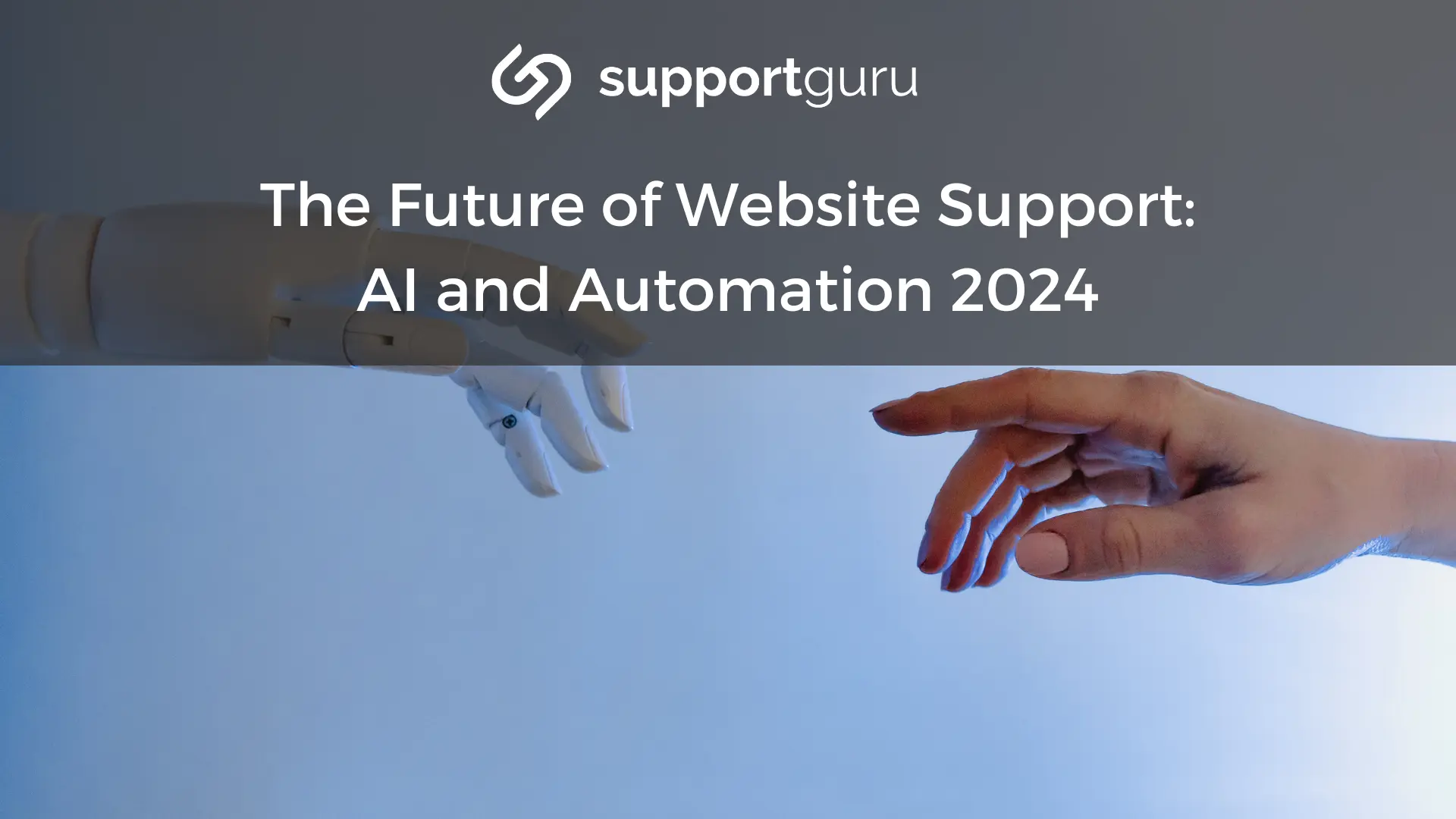Due to the rapid advancements in artificial intelligence (AI) and automation, the landscape of website support is changing dramatically.
These disruptive technologies are fundamentally changing the way website issues are identified, addressed, and ultimately prevented.
By leveraging AI and automation, website support teams can expect to streamline workflows, enhance efficiency, and potentially personalize the support experience for users.
Support Agents and Expediting Resolutions
Website support teams often find themselves bogged down by a high volume of repetitive tasks.
Basic troubleshooting for common website issues, such as password resets, image display problems, or broken forms.
Answering frequently asked questions (FAQs) across a variety of topics related to website functionality, security best practices, and account management.
Resolving configuration issues associated with plugins, themes, or integrations with third-party services.
While crucial for maintaining website functionality and user satisfaction, can be time-consuming for human support agents. This can lead to bottlenecks and delays in resolving more complex issues.
AI-powered chatbots equipped with machine learning capabilities can effectively handle these repetitive inquiries.
Chatbots can be trained on vast databases of past support interactions, enabling them to understand user queries, diagnose basic problems, provide accurate solutions, or point users toward relevant resources within the knowledge base.
Proactive Maintenance for Optimal Performance
Technically, website support has been reactive, focusing on resolving issues only after they arise. However, AI introduces a paradigm shift towards proactive maintenance.
Website performance data such as page loading times, server response times, and resource utilization.
Server logs that capture detailed information about website activity, potential errors, and security events.
User behavior patterns are gleaned from website analytics tools to identify potential areas of friction or functionality issues users might encounter.
The AI system can then trigger alerts for support agents, allowing them to investigate the issue and implement corrective measures before it disrupts the user experience.
With the help of AI, this proactive approach to website support reduces website downtime and its detrimental effects on user engagement, brand reputation, and potential revenue loss.
Streamlined Workflows for Faster Resolution
Website support teams often grapple with managing a high volume of support tickets submitted through various channels. This can lead to delays in assigning tickets to the appropriate support agent and resolving issues promptly.
Automation can significantly streamline incident management workflows.
Automatically categorize and prioritize support tickets based on the nature of the issue, urgency level, and user context. This ensures that critical issues are addressed first and that tickets are routed to the most qualified support agents based on their expertise.
Automate repetitive tasks within the incident management process, such as sending initial confirmation emails to users, collecting basic diagnostic information, or escalating high-priority tickets to the appropriate team.
Provide real-time updates to users about the status of their tickets, keeping them informed of the progress and estimated resolution timeframe.
Tailored Solutions for Individual Needs
AI has the potential to revolutionize website support by tailoring the support experience to individual needs.
Analyze Past Interactions and User Data
AI systems can analyze past interactions with individual users, including their support ticket history, website usage patterns, and any specific preferences they may have expressed. This allows AI-powered chatbots or support portals to tailor their responses and recommendations to the user's unique situation.
Contextually Relevant Solutions
By understanding the user's specific issue and past interactions, AI can recommend relevant solutions or knowledge base articles that directly address their needs, eliminating the need for users to navigate through generic responses or irrelevant information, leading to a faster and more satisfying resolution experience.
Dynamic Self-Service Options
AI can power dynamic self-service portals that personalize the information presented to users based on their past behavior and the nature of their questions.
For instance, a user encountering a login might be presented with a self-service option to reset their password or troubleshoot common login problems, tailored to their specific website account setup.
Evolving Capabilities for Long-Term Effectiveness
AI systems can analyze multiple datasets of support interactions, including successful resolutions, user feedback on chatbot responses, and knowledge base article engagement metrics.
The landscape of website technologies and user behaviors is constantly evolving. AI can analyze emerging trends and adapt its functionalities accordingly.
For instance, AI can be trained to identify and address issues specific to new website development frameworks or user behavior patterns associated with the latest web design trends.
